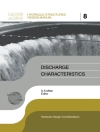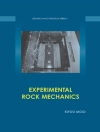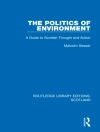The book covers the topic of the role of public sector in the economic and territorial development across several dimensions of spatial planning, e.g. theoretical-methodological (planning cultures, leadership), executive (regional policies, services of general interest), sectoral (energy, tourism, air-quality) or social (social innovation, preservation of cultural heritage). The book delivers up-to date knowledge build on interactions between representatives of different stakeholders of economic and territorial development with the research represented by renowned experts and academicians. This is mirrored in the content of the book, delivering in a consistent form the conceptual explanations combined with the examples of the role of the public sector in fostering the local economies within the frame of spatial planning. The book reflects and transfers the expert knowledge which has been generated during more than a decade of scientific and research activities of Spa-ce.net.
- Presents a comprehensive view on different aspects of the involvement of public sector in the local and regional spatial development;
- Includes a combination of macro-regionally specific perspectives with the generalized knowledge;
- Provides knowledge from various researchers from prestigious European scientific and research teams.
Tabela de Conteúdo
Chapter1: Editorial.- Chapter2: Innovations and changing role of public sector in spatial development strategies – Problems and challenges for local and regional development in Central and Eastern European Countries after 2020.- Chapter3: Spatial planning policies and the integration models as a mean for a better delivery of services of general interest.- Chapter4: Utilising Endogenous Potentials via Regional Policy-led Development Initiatives in (post-) Industrial Regions of Central Europe.- Chapter5: Energy Sensitive Spatial Planning As A Public Sector Tool Towards Sustainable Economic And Territorial Development.- Chapter6: Determining of land values by spatial location – Supporting public expert committees’ in provision of market transparency.- Chapter7: Forest commons as a model for territorial governance.- Chapter8: The role of leadership in public development policies in the contexts of Central European planning culture.- Chapter9: Urban transformation between culturalheritage preservation and local economic development – The public sector between the fronts?.- Chapter10: Social innovations and sustainable economic development: key study Tourism destination management.- Chapter11: Professional capacity building as the public sector intervention towards sustainable economic and territorial development. Key study Knowledge Hubs Network for energy efficiency.- Chapter12: The public in search of identity – new symbolism in urban spaces. A study of central squares of Balkan capitals.- Chapter13: Professional Associations as Public Actors in the Formulation and Implementation of Spatial Development Policies. Key study Monitoring and Evaluation Standard for the Urban Environment of Sofia.
Sobre o autor
Professor Maroš Finka was for a number of years Director of the Institute of Spatial Planning at the Slovak University of Technology in Bratislava, Vice-Chancellor of the University, recently director of Central European Research and Training Centre in Spatial Planning – Centre of Excellence EU and expert of the Office of the Government of the Slovak Republic and president of Slovak Smart City Cluster. Prof. Finka has participated in more than 40 national and more than 35 international research projects, in more than 30 national and 20 international projects as the project or team leader covering the topics of European spatial planning, urban development and regeneration and environmental planning. He is the member of national and international scientific boards, member of German Academy for Spatial Research and Planning, member of advisory boards of Slovak Ministry of Environment and Slovak Ministry of Transport, Construction and Regional Development, Ministry of Inner Affairs of the Federal State Rheinland Pfalz. He works as the expert at the Ministry of Transport, Construction and Regional Development of the SR, as the expert of United Nations Organisation for Habitat III. He is also widely published in books and international planning journals (Author or co-author of 41 books, more than 80 published papers, more than 100 papers presented at the international scientific events. He is member of several editorial boards of scientific journals in Slovakia and abroad. As the Chairman of the SPA-CE.NET – Network of Spatial Research Institutions in Central and Eastern Europe he is considered to be one of the leading academics in CEE countries in the field of spatial planning. He was awarded as Scientist of the Year in Slovakia and by the Danubius Award 2017 for research.
Assoc. Prof. Matej Jaššo, Ph D. Is a lecturer and researcher in Department of Spatial Planning, Institute of Management, STU Bratislava and a network coordinator of Spa-ce.net (research network of universities and research institution in the field of spatial planning). He has a master degree in environmental and social psychology (1974), Ph D. In urban planning (2004), habilitation in spatial planning (2015).
MSc. Milan Husar Ph D. is a lecturer and post-doctoral researcher in Department of Spatial Planning, Institute of Management, STU Bratislava. He has a masters degree and Ph D. in urban planning (2016).












